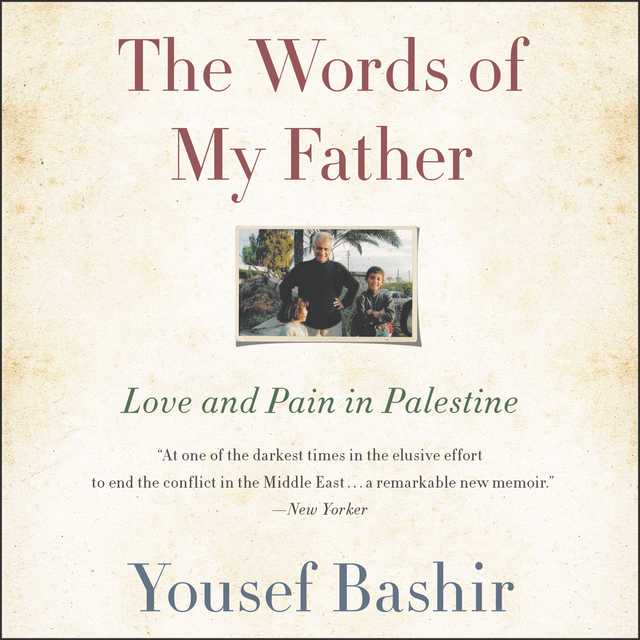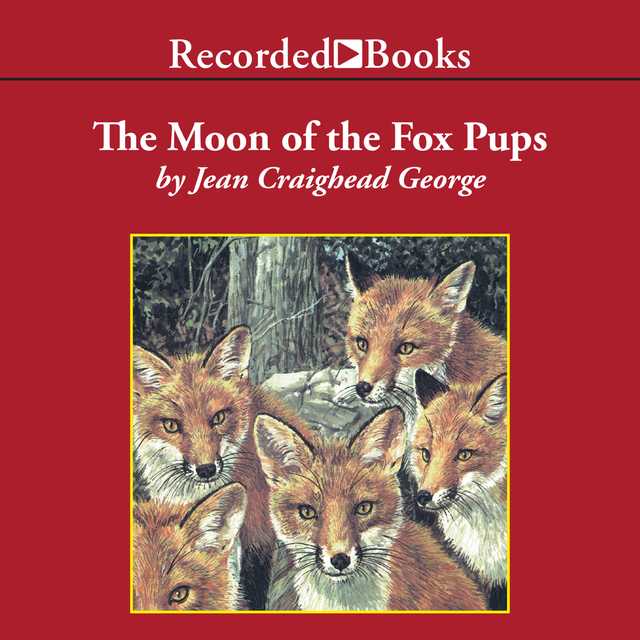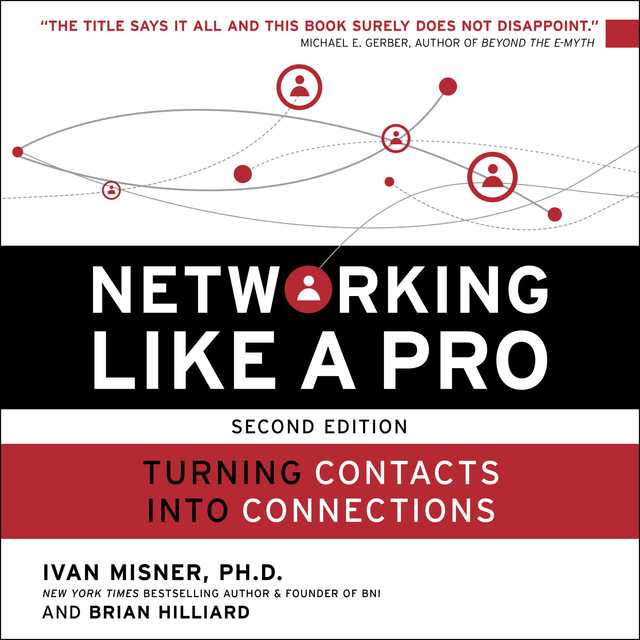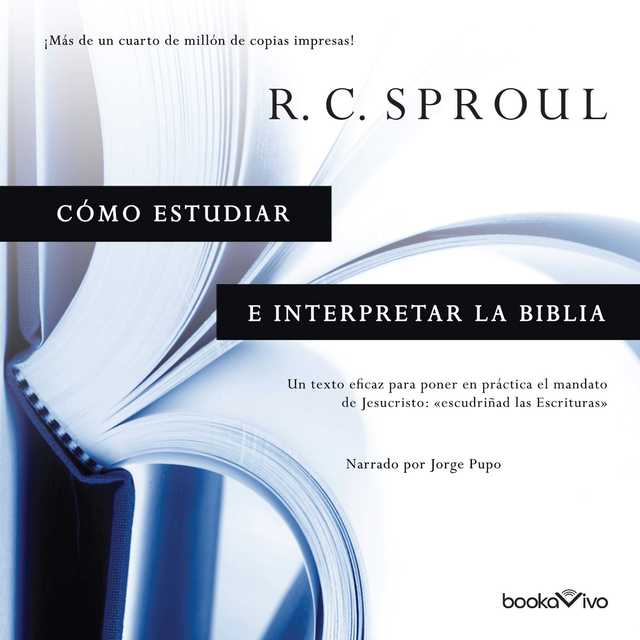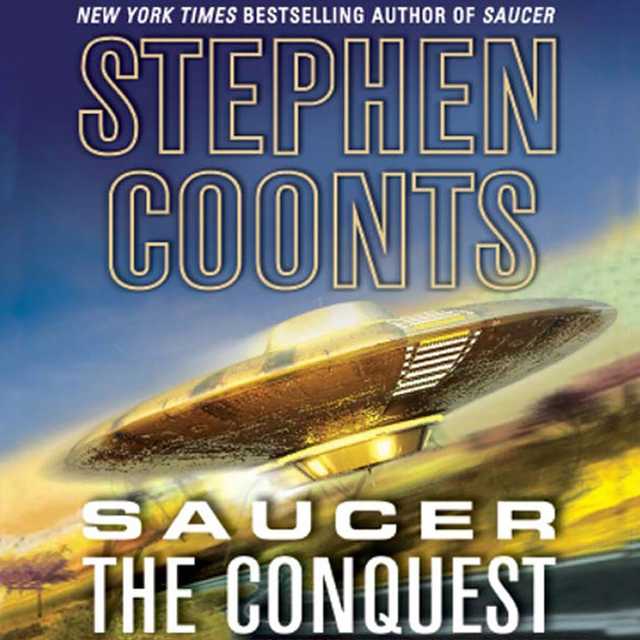The Words of My Father Audiobook Summary
A Palestinian-American activist recalls his adolescence in Gaza during the Second Intifada, and how he made a strong commitment to peace in the face of devastating brutality in this moving, candid, and transformative memoir that reminds us of the importance of looking beyond prejudice, anger, and fear.
Yousef Bashir’s story begins in Gaza, on a verdant ten-acre farm beside an Israeli settlement and military base. When the soccer-mad Yousef was eleven, the Second Intifada exploded. First came the shooting, then the occupation. Ordered to leave their family home, Yousef’s father refused, even when the Israeli soldiers moved in, seizing the top two floors. For five long years, three generations of the Bashir family were virtual prisoners in their own home. Despite this, Yousef’s father–a respected Palestinian schoolteacher whose belief in coexisting peacefully with his Israeli neighbors was unshakeable–treated the soldiers as honored guests. His commitment to peace was absolute.
Though Yousef’s family attracted international media attention, and received letters of support from around the world, Yousef witnessed the destruction of his home, his neighborhood, and the happy life he had known with growing frustration and confusion. For the first time he wondered if his father’s belief in peace was justified and whether he was strong enough–or even wanted–to follow his example. At fifteen, that doubt was tested. Standing in his front yard with his father and three United Nations observers, he was shot in the spine by an Israeli soldier, leaving him in a wheelchair, paralyzed from the waist down, for a year.
While an Israeli soldier shot him, it was Israeli doctors who saved Yousef and helped him eventually learn to walk again. In the wake of that experience, Yousef was forced to reckon with the words of his father. And like the generous, empathetic man who raised him, he too became an outspoken activist for peace.
Amid the tragedy of the ongoing Middle Eastern conflict, The Words of My Father is a powerful tale of moral awakening and a fraught, ferocious, and profound relationship between a son and his father. Bashir’s story and the ideals of peace and empathy it upholds are a soothing balm for these dangerous and troubled times, and a reminder that love and compassion are a gift–and a choice.
Supplemental enhancement PDF accompanies the audiobook.
Other Top Audiobooks
The Words of My Father Audiobook Narrator
Yousef Bashir is the narrator of The Words of My Father audiobook that was written by Yousef Bashir
Yousef Bashir is a Palestinian-American from the Gaza Strip, the son of Khalil Bashir, a highly respected educator. Still suffering the effects of a near catastrophic injury at the hands of an anonymous IDF soldier, Yousef made his way to the United States where he earned a BA in International Affairs from Northeastern University and an MA in Co-existence and Conflict from Brandeis University. Now living in Washington DC, Bashir has worked on Capitol Hill, and served as a member of the Palestinian Diplomatic Delegation to the United States. Yousef is an accomplished author, a vigorous advocate of Israeli-Palestinian peace, and much sought-after public speaker.
Facebook: YousefKhalilBashir
Instagram: yousef_khalil_bashir
About the Author(s) of The Words of My Father
Yousef Bashir is the author of The Words of My Father
More From the Same
- Publisher : HarperAudio
- Abraham
- American Gods [TV Tie-In]
- Dead Ringer
- House of Sand and Fog
- Prey
The Words of My Father Full Details
| Narrator | Yousef Bashir |
| Length | 7 hours 29 minutes |
| Author | Yousef Bashir |
| Category | |
| Publisher | HarperAudio |
| Release date | May 07, 2019 |
| ISBN | 9780062939524 |
Subjects
The publisher of the The Words of My Father is HarperAudio. includes the following subjects: The BISAC Subject Code is Biography & Autobiography, Social Activists
Additional info
The publisher of the The Words of My Father is HarperAudio. The imprint is HarperAudio. It is supplied by HarperAudio. The ISBN-13 is 9780062939524.
Global Availability
This book is only available in the United States.
Goodreads Reviews
Yossi
August 12, 2022
One of my favorite books ever. A beautifully written, heartbreaking story with a message of peace and coexistence. It is a story that speaks to me, a Jewish reader, on how occupation has corrupted my dear Israel. I have a strong bond with the Jewish State, and it's sad to look at it as the perpetrator of injustice and inhumanity. Nevertheless, the Israel I know and love is also represented in the book as the nurses who helped Yousef in Tel Aviv and the kids he lives with in the hospital. It's a story of humanity, of how people represented in the media as just victims have too, a daily life: the Palestinians go to school, like soccer, mess around with their friends and hide from their parents.It is a story of peaceful resistance and sacrifices, as Khalil Bashir, the father of the author, did not give in to the IDF Soldiers who mistreated his family, shot his son and made them prisoners in their own house. In the contrary, he always treated them like guests and seemed to understand that they don't know what they're doing because "they are kids".The thing that shocked me the most was the necessity to humiliate by the soldiers. Khalil Bashir relates that after the night they left in the Gaza Disengagement, they found that the soldiers had defecated on all the Kitchen Pots just to disturb them, or to asses their "superiority" over the family.I love the ending of the book, with a peace offering to the soldier who shot him: “Without your bullet, I might never have understood forgiveness. You were created by the same God who created me. You have the same humanity as I have. You are part of the same family as I am. I forgive you, my cousin.” concludes Bashir.Must-read.
Lisa
November 24, 2018
I normally wouldn't have picked up this book, but the author was our houseguest for a time during the 2018 election, when he came to Seattle to volunteer for a congressional candidate who I also volunteered for. He gave us a copy of his book, and it was a fascinating read. Having been raised Jewish, I had only one side of the Israel-Palestine story, and his book is an evocative telling of the other side. Yousef's father showed him how, with Ghandi-like serenity, to be a force for peace even when you have been given so many reasons to hate.
Linda
May 26, 2019
This is a beautifully written and moving memoir. Yousef Bashir is from a middle-class family in Gaza. His father is the headmaster of the local high school and the family owns a large idyllic farm where he and his siblings are raised. His childhood is very happy until the onset of the second intifada. Then a battalion of Israeli soldiers moves into the family home, taking over the top floors and forcing the family to live huddled in one room. Yousef's father is an outstanding individual who believes in peace and co-existence with the Israelis. He refuses to leave his home or succumb to hate. As a young teen, Yousef sees his father's refusal to give in to anger as a weakness. When Yousel is shot by one of the soldiers on guard he is filled with anger at both the soldier and his father.Because of his injury, (he was shot in the back and unable to walk), he was sent to Tel Aviv for treatment. Here he encountered Israeli, doctors, nurses, physical therapists and fellow patients who treated him and his parents with kindness and caring. They were able to treat him successfully and he was able to walk again.Yousef's negative and positive experiences with Israelis helped him to see complexity and difference within groups and begin to understand his father's belief in the possibility of peace. After his recovery, he participates in the Seeds of Peace program and eventually comes to live and study International Relations in the United States. Upon his father's death, Yousef decides to dedicate his life to working for peace and coexistence between Palestinians and Israelis. The book is a loving tribute to his father. I highly recommend it.
Deb
January 02, 2020
Very informative read and perspective from a Palestine man growing up in Gaza.
Sarah Beth
May 09, 2019
I received an uncorrected proof copy of this memoir from HarperCollins. In this memoir, author Yousef Bashir tells the story of his childhood and adolescence growing up in Gaza under occupation by the Israelis. When Yousef's father, a tireless advocate for peace, refused to leave the family home and make his children refugees, the Israelis simply took over the top two floors of their family home. While Yousef just wanted to be a typical kid and play soccer, he was forced to live with soldiers in his home who locked him and his family into their living room every night. Then, when he was fifteen, he was shot in the spine by an Israeli soldier and spent over a year in a wheelchair. This time away from his family and in the aftermath of the senseless cruelty of a strange forced Yousef to contemplate his father's dedication to peace. It was hard to imagine the force of his father's moral convictions to stay in his home even as the soldiers slowly destroyed his property, severely impeded his family's quality of life, and ultimately severely injured two of his children. In fact, his father received international attention as a result of his unusual choice. Given the circumstances, Yousef's frustration with his father's choice was easy to understand, which only made his eventual commitment to the same beliefs. I haven't read extensively about the Israeli occupation in Gaza and this was an interesting introduction. Beyond the issues that plagued the place of his birth, this memoir tells the story of a father son relationship. After spending much of his childhood frustrated by his father's choices and advice, Yousef ultimately came to deeply respect his father's views and has followed in his footsteps to be a strong advocate for peace.
Hamna
June 02, 2021
This book gave me a new perspective on the situation in Palestine. Throughout, when something horrible would happen I would find myself thinking “it’s ok it’ll get better soon” because that’s what happens in books, it gets bad then it’s gets better. However, i had to remind myself that this isn’t a story, it’s the reality of many Palestinians and even if the book ends on a positive note, the story is not over. I feel that the ending of the book could have been better, however, it is a memoir so I cannot complain about someone’s experiences. I disagree with America being the saviour and hope that in the continuation of this, Yousef is able to see that when his classmates said he was a puppet to America, it was not entirely wrong and definitely was not a compliment.
Alice
August 23, 2019
An interesting read from a different point of view.....a peace-loving Palestinian family living in occupied Gaza. We are all family and the Palestinians and Israelis closer than most. They are indeed cousins. Co-existing in such a small area would be nice. Hopefully one day, it will also be possible.
Jennifer
September 05, 2019
“Don’t be afraid, don’t be afraid. It will be all right...The walls shook as the house was hit with waves of bullets and small missiles. This, I thought, was the truth standing between me and the words of my father.” Author Yousef Bashir’s father describes, “I am a peace lover. I don’t attack, nor hate, nor plot. Nor do I lose my right to exist.” While Bashir expresses, “All I knew about Israelis was that they had guns and had the power to tell me and my family when to use the bathroom and when to go to school, and that one of them had almost ended my life a few weeks earlier. Apparently, just because he could...I spent hours imagining that some day I would meet him again so I could ask him: ‘Why?’” “Why can people not live in peace, enjoying the luxuries of their ingenuity instead of living on the thorns of their tragedies?”Bashir wrestles with this question without an answer in his letter to the soldier who shot him: “Three pieces of your bullet embedded in my back, next to my spine, make me think of you every day. I wanted to hate you, but a miracle happened. No, not the miracle that I can walk again. Another miracle. One that was shown to me through my father’s commitment to peace, my mother’s unfathomable love, and the doctors and nurses who tended to me with the deepest compassion. It is the miracle of forgiveness. Without your bullet, I might never have understood forgiveness. You were created by the same God who created me. You have the same humanity...You are part of the same family...I forgive you, my cousin. In peace.”“The bullet constantly reminds me that I am a human being and in that I find optimism. I have never felt hatred toward anyone and I never had to wrestle with hatred until I was shot. For me, believing in peace is not just an act or a few words. I have to forgive the soldier and to forgive the people of Israel. That is how I plan to win back my freedom and homeland.”Peace begins at HomePeace begins in MePeace begins in YouPeace begins in HerPeace begins in HimPeace begins in ThemThis is my home.This is my house.This is my land.It is my childhood.It is my memories.It is my family.The love of my land runs in my veins.The Words of My Father is a profoundly moving, hopeful and relevant memoir, required reading for all global citizens and soldiers waging peace.
Andy
October 10, 2019
Although Bashir comments on the pressing political issues in Israel and Palestine, this book may be better regarded as what he calls a "spiritual journey". From a young age, Yousef and his siblings were urged by their father, a well-known and respected educator, to meet hatred with forgiveness and seek peace. The author probably saved himself from a lifetime of bitterness by absorbing this lesson through a series of terrible experiences, as Israeli soldiers destroyed the family farm, trapped them in their own home, and ultimately nearly killed the author through a gunshot to his back.The book starts (like some other Palestinian narratives I have seen) describing an idyllic childhood, which is an important point because it makes clear that Bashir's drive to come to America was not driven by a disdain for Gaza, but rather by the realization that he could not get a good education or pursue his mission under the occupation. The book extends long enough to briefly discuss the Hamas victory and war with Israel, but politics are not really central to the book.Westerners rarely get to see Gaza outside of wars and political fights, so this book is valuable in showing us a place that is normal in many ways, with an economic life, boys playing pranks, international visitors, and delicious meals. Bashir himself comes across as an ordinary kid, not a great student, interested in video games and good food. This sense of normality makes the absurd and disturbing treatment by Israeli soldiers seem even more disorienting, and Bashir's subsequent achievements even more impressive.
Khanh
December 16, 2019
Quotes: - "Both of the teachers were refugees whose families had fled other parts of Palestine after the formation of Israel in 1948. Unlike my family, they had experienced the special bitterness of being refugees. My father understood that. They all knew, though, that there was no reason for them to argue among themselves, that the cause of their problems was not with each other. They practiced their own form of coexistence."- "It became harder and harder to know what to think about my father or his philosophy. Although it was the soldiers who were creating this hell for us, I found myself getting frustrated with him." - "Sometimes, he gave me one of his speeches about thinking positively. Sometimes, I did not want to hear all that again. I had been told that if he was tiring me I was to tell him to leave. I loved knowing I had that power. I never used it. I wanted to keep hearing his voice, and he would talk until I eventually managed to fall asleep." - "Many carried foreign passports; some of them even had US passports and cuold travel wherever they wished. They, of all people, should have seen the need for a peaceful resolution. Yet, I felt like I was the only one at the school who understood the importance of peace. I, with only a Palestinian Authority passport for five years had barely allowed me to go to my own bathroom, seemed more aware than all the rest of them. It blew my mind how so many Palestinians walked around with hatred toward one another because of a mess started by the British, the Egyptians, the Israelis, and a whole of other people who were not Palestinians." - "My brothers would also call me from Germany and my sweet older sister even sent me a Kodak camera for my birthday. 'Take pictures, Yusfi. I want to see you,' she wrote. It seemed so pointless though. Our lives were becoming so different, how could a picture make up for the difference?" - "In those dreams that happen when you are not quite asleep and not quite awake, my father came to visit me, and even brought my mother with him Her voice swept through my furniture-less flat, wondering what she should cook for me and if I had detergent for my laundry. I did not believe the illusion and kept on struggling to fall asleep, but my beautiful smiling father, dressed completely in white, sat on the right edge of my mattress. 'Would you like to have tea with me?' he offered with his usual enthusiasm. 'Do not be afraid, everything is going to be fine, you are going to be fine,' he added, before standing up to go argue with my mother about something she had or had not done, while I made the sad mistake of waking up." Comments: Re: Palestine and Israeli occupation: - Beautiful book that is enlightening about the Palestinian-Israeli "conflict" (is there really a conflict or confusion if one side is clearly the more aggressive and invasive side that started all the war? I'll let you decide.) - In the US, no one TALKS, much less argues, about the Palestinian-Israeli issues. Probably some political ties and cultural influences, but few people understand how horribly the Palestinians are treated by the Israelis. Most think it is a conflict with both sides sharing equal shares of suffering, war, destruction, and deaths -- but that is not true. I'm sure it might be true now (although it's hard to think Palestine can equal Israel in military force and weapons, what with Western support and investment), but in the beginning, it's not hard to realize who "started" the "war". - Read this book to see what is happening on the ground, what it really means to live on Gaza Strip during the Israeli occupation as a Palestinian, what WAR is like. - Reading this, I wish that it were fiction -- just a made up story that no one had to live through, because I didn't want to believe the Israeli military was committing such atrocities. But this is a true book. Even if you don't read this book, GO EDUCATE YOURSELF ON PALESTINE HUMAN RIGHTS CRISIS.Re: writing and literary analysis: - 4 stars for the structure and plot, 3.5 stars for writing style and voice. - Prose not super concise and clean cut, sometimes repetitive, could use a bit more of revision. - But the thing I wanted to discuss most is the difference between an artist and a politician. An artist - a writer - wants to be multifaceted, wants to show the audience the diversity of his thoughts and be unpredictable, causing the audience to go ooh and aah. But a politician, in order to be heard and to gain support, must be absolutely straightforward and SINGULAR in opinion. In other words, a politician must always always take a side and be simple-minded, neglecting the diversity of viewpoints. Neither bad nor good, this book was written by a politician. That much was clear. It was evident in the voice, in the constant repetition of the author's political message, the simple-mindedness with which the author approached the problem and regurgitated his "mantra". - This book is a good tool to spread his story and message, but it is not exactly a masterpiece in storytelling. There was little change in the narrator's views and opinions, only one big one after he had gotten hurt, and even that one was not well explained. He claimed his time in the hospital helped him gain perspective on the Jews - yes, but there must have been moments of doubt as well. And where are those? In order to make it more real for the readers to follow along your thought process, you should explain any initial hesitation and how you overcame it. For example, the scene with the Americans who were prejudiced against Palestinians specifically or Muslims more generally, how did that make you feel? Did you hate them? Were you disgusted by them? I understand the message the author is trying to spread is that of PEACE, in which you should never say you hate someone. Again, because this book is written by a politician, it should not show weaknesses or anything that goes against the preaching, but if this book's sole purpose was to tell a story, from one human to another, one way to be more relatable is to expose your own vulnerabilities to the readers, to allow them to understand you and, only later, believe you.
Mary
June 11, 2019
My first thought as I read this book: it cannot be easy for any teenager to be raised by a saint. And Khalil Bashir, Yousef's father, is a saint by almost any definition: Pious, thoughtful, patient, self-disciplined, hardworking, and almost superhuman in his forbearance and ability to forgive and endure. Yousef, on the other hand, presents himself as a harum-scarum young teen, eager to play pranks and have fun with his friends, and not so eager to work the family farm or do his homework. Like any teenage boy, he often butts heads with his strict father. But then come two great changes in his life. An Israeli soldier shoots him in the back, nearly crippling him. And as he recovers from this terrible wound, Yousef becomes determined to leave the Gaza strip, which, thanks to the occupation forces, has become a prison and not the paradise of his early childhood. As he grows up and finds his way forward, Yousef's relationship with his father begins to shift. In the end, this is a moving tribute to a remarkable man. For many readers, it will also be an eye-opening introduction to Palestinian life under occupation. Yousef's plain-spoken narration makes his story very accessible; it can be recommended to teens as well as adults.
Kathy
July 23, 2019
This is an exception book, written by a man who as a teenager was shot at his home in Gaza in the back by an IDF soldier. He has ample reason to be angry and bitter, but by some miracle, and due to the words of his father, he is not. His experience after being shot and paralyzed included being treated and healed by Israeli doctors. He has written this book, and his Israeli friend Yossi Hadlevi has written To My Palestinian Neighbor, and they are touring of course to promote the books, but in truth in order to find a solution to the situation in Israel and Palestine.
Madeline
September 06, 2020
An incredible powerful message and story (5/5), I just found the writing style to be a bit informal and repetitive.
Noel نوال
July 02, 2021
This is Yousef Bashir's story, and he cannot tell his own story without telling the story of his father Khalil Bashir. "The Words of My Father" was moving in so many ways. Khalil, Yousef's father, was determined for his family to not become refugees when the siege of Gaza began. He refused not to fight with everything he had to prevent his family's home and ancestral land from being taken over by the European and American settlers. Israeli troops took over their home, squatted in the attic where they defecated and pissed everywhere, destroyed their crops and land, and forced the family to live in terror and imprisonment within the living room every single night. If the Bashir family wanted to use their own bathroom they had to ask permission, and often the request would lead to torment and denial of a basic human need. In the face of the dehumanizing conditions and consistent gross violations of their human rights Yousef's father Khalil maintained his dignity and never allowed the cruelty of the Israeli soldiers and settlers to bring him down to their level. Khalil was determined to live a peaceful life and be the flower that gives its scent even to the hand that crushes it. This is Yousef's story of having his family home in Gaza occupied, watching his father preach for peace and coexistence, and getting shot in the back by an Israeli soldier and becoming paralyzed from the waist down. His story of healing, his story of fighting for a better life away from the terror and inhumanity of the Israeli occupation. This is the story of two generations of a Palestinian family facing the same but slightly different Nakbas. I wish I could sit and talk with Yousef's father and listen to his wisdom. The things he taught his son were deeply wise and full of humility and compassion.
Drew
October 07, 2021
This book gets five stars from me! Very outside of my typical genre, but I found it thoughtful, captivating, and always inviting of introspection. I appreciated that the author allowed his father to do most of the teaching and merely took on the role of narrator. I could see Yousef’s worldview changing throughout his educational adventures and especially the hospital recovery- but the wisdom from these experiences was left for the reader to distill. Instead, we got to hear the philosophies and wisdom of Yousef’s father, who takes on a sage-like quality and whose death felt like a monumental loss for humanity.His family’s struggles were gut-wrenching and hard to hear, but there was so much goodness, humanity, and peace to be found in these pages. While I finished the book outraged at the atrocities committed by Israeli soldiers and settlers, I felt equally convinced that we should take Yousef’s father’s advice to be peaceful and search for our common humanity as we look to solve these and so many other problems in the world. And this book—chronicling the lived experience of human beings experiencing some of the worst that this life has to offer—was a great step forward in that project of understanding.
Most Popular Audiobooks
Frequently asked questions
Listening to audiobooks not only easy, it is also very convenient. You can listen to audiobooks on almost every device. From your laptop to your smart phone or even a smart speaker like Apple HomePod or even Alexa. Here’s how you can get started listening to audiobooks.
- 1. Download your favorite audiobook app such as Speechify.
- 2. Sign up for an account.
- 3. Browse the library for the best audiobooks and select the first one for free
- 4. Download the audiobook file to your device
- 5. Open the Speechify audiobook app and select the audiobook you want to listen to.
- 6. Adjust the playback speed and other settings to your preference.
- 7. Press play and enjoy!
While you can listen to the bestsellers on almost any device, and preferences may vary, generally smart phones are offer the most convenience factor. You could be working out, grocery shopping, or even watching your dog in the dog park on a Saturday morning.
However, most audiobook apps work across multiple devices so you can pick up that riveting new Stephen King book you started at the dog park, back on your laptop when you get back home.
Speechify is one of the best apps for audiobooks. The pricing structure is the most competitive in the market and the app is easy to use. It features the best sellers and award winning authors. Listen to your favorite books or discover new ones and listen to real voice actors read to you. Getting started is easy, the first book is free.
Research showcasing the brain health benefits of reading on a regular basis is wide-ranging and undeniable. However, research comparing the benefits of reading vs listening is much more sparse. According to professor of psychology and author Dr. Kristen Willeumier, though, there is good reason to believe that the reading experience provided by audiobooks offers many of the same brain benefits as reading a physical book.
Audiobooks are recordings of books that are read aloud by a professional voice actor. The recordings are typically available for purchase and download in digital formats such as MP3, WMA, or AAC. They can also be streamed from online services like Speechify, Audible, AppleBooks, or Spotify.
You simply download the app onto your smart phone, create your account, and in Speechify, you can choose your first book, from our vast library of best-sellers and classics, to read for free.
Audiobooks, like real books can add up over time. Here’s where you can listen to audiobooks for free. Speechify let’s you read your first best seller for free. Apart from that, we have a vast selection of free audiobooks that you can enjoy. Get the same rich experience no matter if the book was free or not.
It depends. Yes, there are free audiobooks and paid audiobooks. Speechify offers a blend of both!
It varies. The easiest way depends on a few things. The app and service you use, which device, and platform. Speechify is the easiest way to listen to audiobooks. Downloading the app is quick. It is not a large app and does not eat up space on your iPhone or Android device.
Listening to audiobooks on your smart phone, with Speechify, is the easiest way to listen to audiobooks.

